Engine Fuel
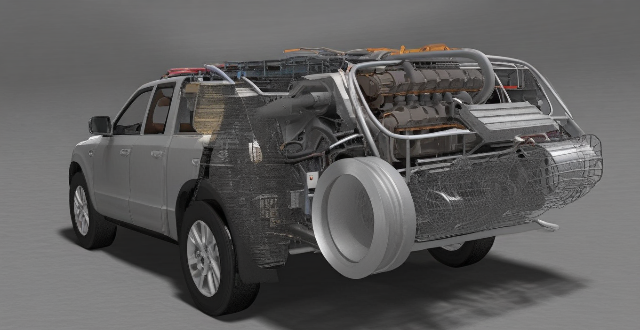
What are the main components of a fuel vehicle's engine ?
The main components of a fuel vehicle's engine include the cylinder block, pistons, connecting rods, crankshaft, camshaft, valves, head gasket, cylinder head, timing belt or chain, oil pump, spark plugs, intake and exhaust manifolds, cooling system, and lubrication system. These components work together to ensure efficient combustion, energy conversion, and overall engine operation.

What are the benefits of a gasoline hybrid engine ?
The article discusses the advantages of a gasoline hybrid engine, which is a combination of a traditional internal combustion engine and an electric motor. The benefits include improved fuel efficiency through reduced fuel consumption, regenerative braking, and start-stop technology; lower CO2 emissions and decreased pollutants resulting in cleaner air quality; and enhanced performance with instant torque, smooth driving experience, and extended brake life due to regenerative braking. Overall, gasoline hybrid engines provide a balance between power and efficiency, making them an attractive option for eco-conscious drivers.

What is the fuel efficiency of a hybrid car ?
Hybrid cars are more fuel-efficient than traditional gasoline-powered vehicles, with an average range of 40-50 mpg in city driving and 35-45 mpg on the highway. This increased efficiency offers benefits such as reduced fuel costs, lower emissions, longer engine life, and potential tax incentives. If you're looking for a more environmentally friendly and cost-effective way to get around, consider purchasing a hybrid car.
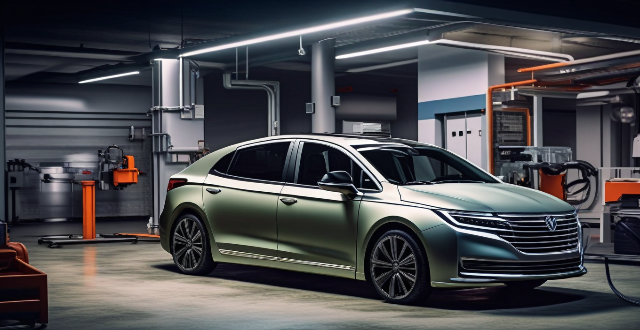
Are diesel hybrid cars more fuel-efficient than regular diesel cars ?
Diesel hybrid cars are more fuel-efficient than regular diesel cars due to the combination of a diesel engine and an electric motor, which optimizes fuel consumption and reduces emissions. They offer improved fuel efficiency, lower emissions, and better performance compared to traditional diesel vehicles.
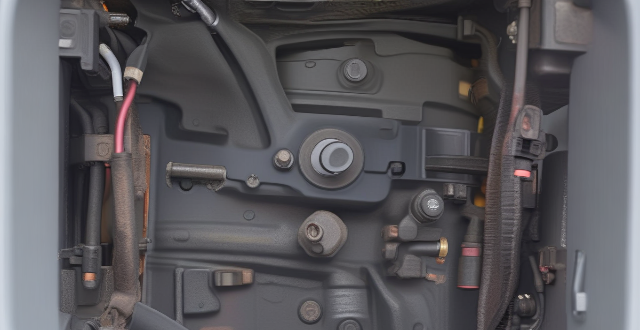
Can an electronic speed controller be used in a car engine ?
The question of whether an electronic speed controller (ESC) can be used in a car engine depends on the type of engine. In traditional internal combustion engines (ICE), which use gasoline or diesel as fuel, an ESC cannot be used because these engines rely on mechanical systems for speed control. However, in electric cars, which use electric motors as their primary source of propulsion, an ESC is essential for controlling the speed of the motor and protecting it from damage. Therefore, while an ESC cannot be used in ICE vehicles, it plays a crucial role in electric vehicles.
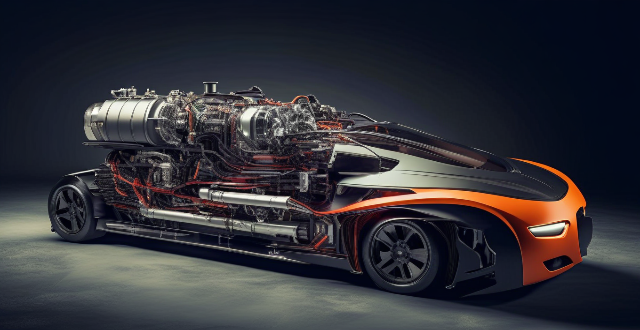
Can I still use gasoline in a gasoline hybrid car ?
Gasoline hybrid cars combine a traditional gasoline engine with an electric motor for improved fuel efficiency and reduced emissions. While they still require gasoline to operate the internal combustion engine, they offer significant savings in fuel costs over time. To maximize fuel efficiency in a gasoline hybrid car, drivers should practice eco-driving techniques, perform regular maintenance, and utilize regenerative braking settings. Gasoline hybrid cars represent a step towards reducing our reliance on fossil fuels and transitioning to cleaner energy sources.
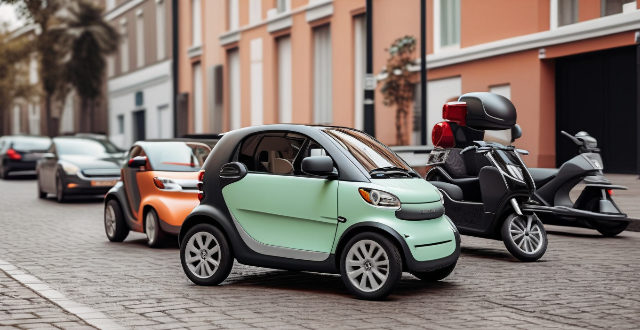
How does the performance of fuel vehicles differ from that of electric cars ?
The performance differences between fuel vehicles and electric cars are significant in terms of acceleration, refueling/charging, emissions, maintenance, and noise/vibration. Electric cars offer faster acceleration, lower maintenance needs, and cleaner operation but may require longer charging times and have limited charging infrastructure compared to the widespread availability of gas stations for fuel vehicles. The choice between the two often depends on personal preferences, lifestyle needs, and environmental considerations.

How does the maintenance cost of fuel vehicles compare to that of electric cars ?
The text discusses the comparison of maintenance costs between fuel vehicles and electric cars. It mentions that fuel vehicles typically require regular maintenance such as oil changes, air filter replacements, and spark plug checks. On the other hand, electric cars generally require less frequent maintenance than fuel vehicles. They do not have traditional engine oil, so oil changes are not necessary. However, they still require regular checks on the battery, brakes, and suspension system. Fuel vehicles often require more frequent maintenance due to their complex internal combustion engines and various fluids that need to be changed regularly. This includes oil changes every few thousand miles, as well as other routine services like brake pad replacements and tire rotations. Electric cars typically require less frequent maintenance because they have simpler drivetrains with fewer moving parts. Battery health is an important aspect of electric car maintenance, but it generally does not require as many check-ups as a traditional engine would. The cost of parts and labor for fuel vehicles can vary widely depending on the make and model of the vehicle, as well as the specific services required. However, fuel vehicles often have more expensive repairs due to their complexity and the number of moving parts involved. While electric cars may initially have higher upfront costs for batteries and specialized components, their maintenance costs tend to be lower in the long run because they require less frequent servicing and have fewer parts that need replacing.

How long do diesel hybrid engines last ?
This article discusses the factors that affect the lifespan of diesel hybrid engines and provides an estimate of their expected lifespan. It also offers tips for maximizing the lifespan of these engines through proper maintenance, responsible driving habits, high-quality fuel, and protection against extreme temperatures.
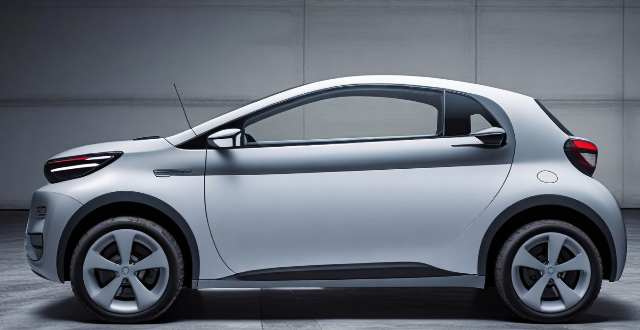
How has the design of fuel vehicles evolved over the years ?
The evolution of fuel vehicle design has been marked by significant changes and innovations over the years. From horse-drawn carriages to modern electric cars, each new development has brought its own set of benefits and challenges. Key milestones in this evolution include the introduction of steam-powered vehicles during the Industrial Revolution, the invention of gasoline-powered vehicles in 1885, the rise of diesel engines in the early 20th century, and the recent resurgence of electric cars. Looking ahead, we can expect further advancements in autonomous driving technology, hydrogen fuel cells, and biofuels made from renewable sources.

How efficient is a Series Hybrid Electric Vehicle ?
Series hybrid electric vehicles (SHEVs) combine internal combustion engines and electric motors to power wheels, offering efficiency benefits through regenerative braking, engine optimization, and electric drive. However, added weight, system complexity, and battery depletion can be drawbacks. The efficiency of SHEVs hinges on design and driving habits.

What is the average fuel consumption of a typical fuel vehicle ?
The average fuel consumption of a typical fuel vehicle can vary depending on several factors such as the type of vehicle, driving conditions, and maintenance. However, we can provide a general overview of the fuel consumption rates for different types of vehicles: - Small cars typically have better fuel efficiency than larger vehicles, with an average fuel consumption of around 6-8 liters per 100 kilometers (L/100km). - Midsize cars usually have slightly higher fuel consumption rates compared to small cars, with an average fuel consumption of around 8-10 L/100km. - Large cars generally have higher fuel consumption rates due to their larger size and weight, with an average fuel consumption of around 10-12 L/100km. - Small SUVs are becoming increasingly popular and offer relatively good fuel efficiency, with an average fuel consumption of around 9-11 L/100km. - Midsize SUVs are larger and heavier than small SUVs, resulting in higher fuel consumption rates, with an average fuel consumption of around 11-13 L/100km. - Large SUVs are the largest and heaviest vehicles in this category, leading to higher fuel consumption rates, with an average fuel consumption of around 13-15 L/100km. - Light duty pickups are designed for carrying light loads and offer reasonable fuel efficiency, with an average fuel consumption of around 12-14 L/100km. - Medium duty pickups are larger and more powerful than light duty pickups, resulting in higher fuel consumption rates, with an average fuel consumption of around 14-16 L/100km. - Heavy duty pickups are designed for heavy-duty tasks and have the highest fuel consumption rates among pickup trucks, with an average fuel consumption of around 16-18 L/100km. It's important to note that these figures are just estimates and actual fuel consumption can vary based on individual driving habits, vehicle condition, and other factors. Additionally, newer vehicles with advanced technology may have lower fuel consumption rates than older models.
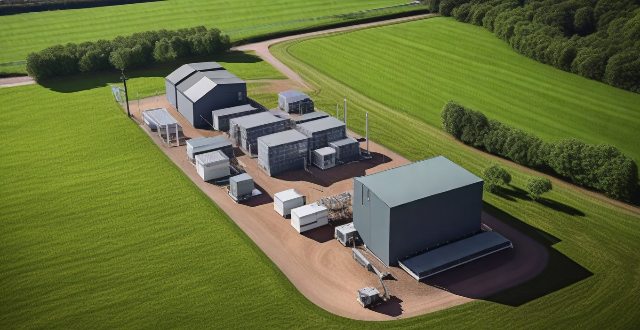
How efficient is a Compound Hybrid Electric Vehicle in terms of fuel consumption ?
Compound Hybrid Electric Vehicles (CHEVs) are efficient in terms of fuel consumption due to their dual power sources, regenerative braking, advanced energy management system, aerodynamic design, and weight reduction.
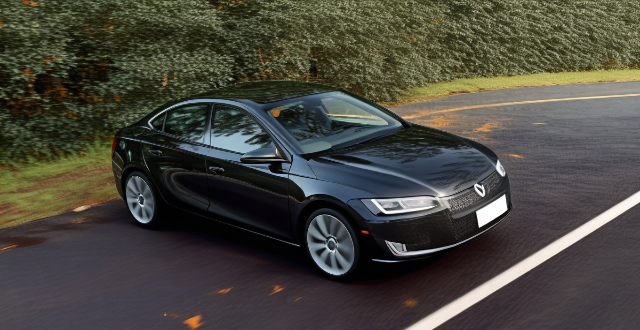
How far can a gasoline hybrid car travel on a full tank of gas ?
The text discusses the fuel efficiency and range of gasoline hybrid cars on a full tank of gas. Factors affecting fuel efficiency include driving habits, traffic conditions, vehicle maintenance, and weather conditions. Gasoline hybrid cars typically have higher fuel efficiency ratings than traditional gasoline-powered cars due to their combination of an electric motor and a gasoline engine. The estimated range of many gasoline hybrid cars is around 300-500 miles on a full tank of gas, with some having larger fuel tanks or higher fuel efficiency ratings allowing for greater ranges. Maximizing fuel efficiency can be achieved by considering factors such as driving habits and vehicle maintenance.
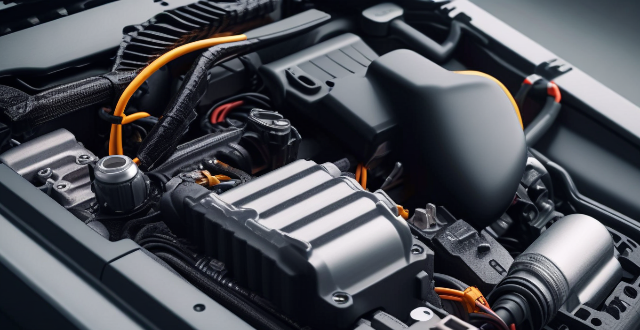
What are the key components of a CHEV's drive system ?
The key components of a CHEV's drive system include the engine, electric motor, transmission, battery pack, and energy management system. The engine generates the majority of the power needed to propel the vehicle, while the electric motor provides additional power during acceleration or hill climbing. The transmission transfers power from the engine and electric motor to the wheels, and may be a conventional automatic or manual transmission or a specialized hybrid transmission. The battery pack stores electrical energy generated by the electric motor during regenerative braking and provides power to the electric motor when needed. The energy management system controls the flow of energy between the engine, electric motor, and battery pack, determining when to use each source of power based on driving conditions, state of charge of the battery, and driver demand. These components work together to provide a seamless driving experience while maximizing fuel efficiency and reducing emissions.

What are the environmental benefits of using a CHEV ?
The text discusses the environmental benefits of using a CHEV (Compound Hybrid Electric Vehicle), which includes reduced greenhouse gas emissions, improved fuel efficiency, lower carbon footprint, conservation of natural resources, and reduced noise pollution. CHEVs combine the powertrains of an internal combustion engine and an electric motor, resulting in fewer emissions and lower fuel consumption compared to traditional gasoline-powered vehicles. They also have regenerative braking systems that capture energy from braking and convert it into electricity for storage in the battery, further improving their overall fuel efficiency. By choosing a CHEV over a conventional vehicle, individuals can reduce their personal carbon footprint and help mitigate the effects of climate change.

What role do fossil fuel companies play in climate change denial ?
Fossil fuel companies contribute to climate change denial through financial interests, lobbying, and disseminating misinformation. They fund think tanks, engage in advertising campaigns, and influence politics to protect their profits and shape public opinion against strict environmental regulations. This resistance hinders effective action on climate change.

How do hydrogen fuel cells work and are they a practical alternative energy source ?
Hydrogen fuel cells are devices that convert the chemical energy of hydrogen into electricity. They consist of an anode, cathode, electrolyte, and external circuit. The process involves splitting hydrogen into protons and electrons at the anode, moving protons through the electrolyte, moving electrons through the external circuit, combining protons and electrons with oxygen at the cathode to form water, and producing heat. Hydrogen fuel cells are renewable, have high energy density, zero emissions, and versatile applications. However, they face challenges such as high cost, limited infrastructure, and safety concerns.
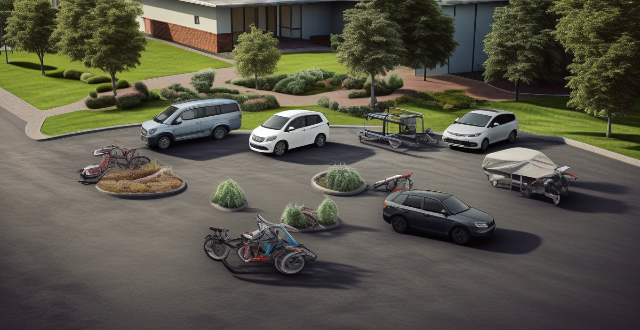
What is the impact of fuel vehicles on global oil demand ?
The widespread use of fuel vehicles, especially those poweredThe widespread use of fuel vehicles, especially those powered engines, has significantly influenced global This increased consumption of petroleum-based fuels has led to economic implications such as price fluctuations and dependence on imports, as well as environmental challenges like greenhouse gas emissions and air pollution. Alternatives to fuel vehicles, including electric and hybrid vehicles, public transportation, and active mobility options, offer potential solutions to reduce our reliance on oil and mitigate these negative impacts.

What are some popular diesel hybrid car models ?
Diesel hybrid cars are becoming increasingly popular due to their fuel efficiency and lower emissions. Here are some of the most popular diesel hybrid car models: The Audi A3 TDI e-tron is a compact luxury car that combines a 2.0-liter TDI diesel engine with an electric motor. It offers up to 150 horsepower and can travel up to 31 miles on electric power alone. The Volkswagen Jetta TDI Hybrid is a midsize sedan that features a 1.6-liter TDI diesel engine paired with an electric motor. It provides excellent fuel economy and low emissions, making it an ideal choice for environmentally conscious drivers. The Peugeot 308 HDi Hybrid is a compact hatchback that combines a 1.6-liter HDi diesel engine with an electric motor. It offers impressive fuel economy and reduced CO2 emissions, while still providing plenty of power and performance. The Skoda Octavia iV is a spacious family car that features a 2.0-liter TDI diesel engine combined with an electric motor. It offers up to 240 horsepower and can travel up to 37 miles on electric power alone, making it a great option for long trips. The Volkswagen Passat TDI Hybrid is a midsize sedan that combines a 2.0-liter TDI diesel engine with an electric motor. It provides excellent fuel economy and low emissions, while also offering plenty of space and comfort for passengers.

How does a Series Hybrid Electric Vehicle compare to a Parallel Hybrid Electric Vehicle ?
Comparison between Series Hybrid Electric Vehicle and Parallel Hybrid Electric Vehicle highlights the differences in power transmission, battery dependency, fuel efficiency, performance, cost, complexity, and regenerative braking capabilities of both types. The series hybrid is more efficient for city driving, while the parallel hybrid suits highway driving better. The choice depends on the user's driving habits and needs, with both offering environmental and economic benefits over traditional vehicles.
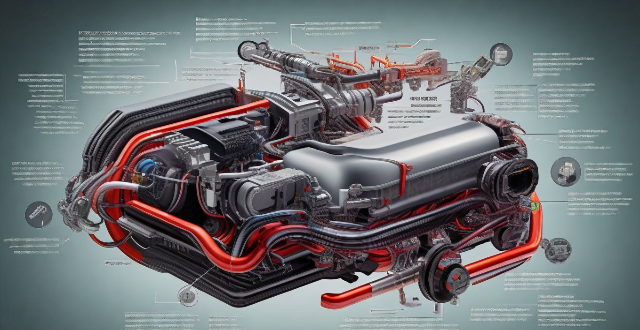
How do I install and maintain a combination motor drive system ?
A combination motor drive system, also known as an integrated drive system or hybrid drivetrain, is a complex assembly of components designed to deliver power from the engine to the wheels of a vehicle. It typically includes an internal combustion engine, one or more electric motors, and a transmission that may incorporate both mechanical and electronic control systems. This guide will walk you through the installation and maintenance process for such a system.